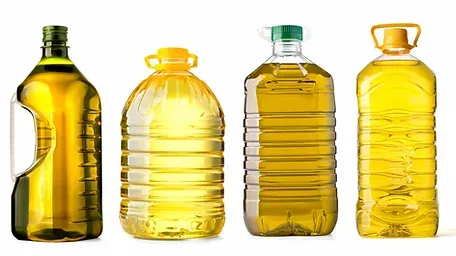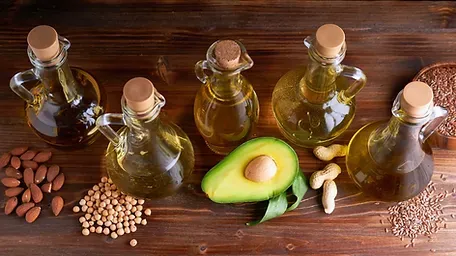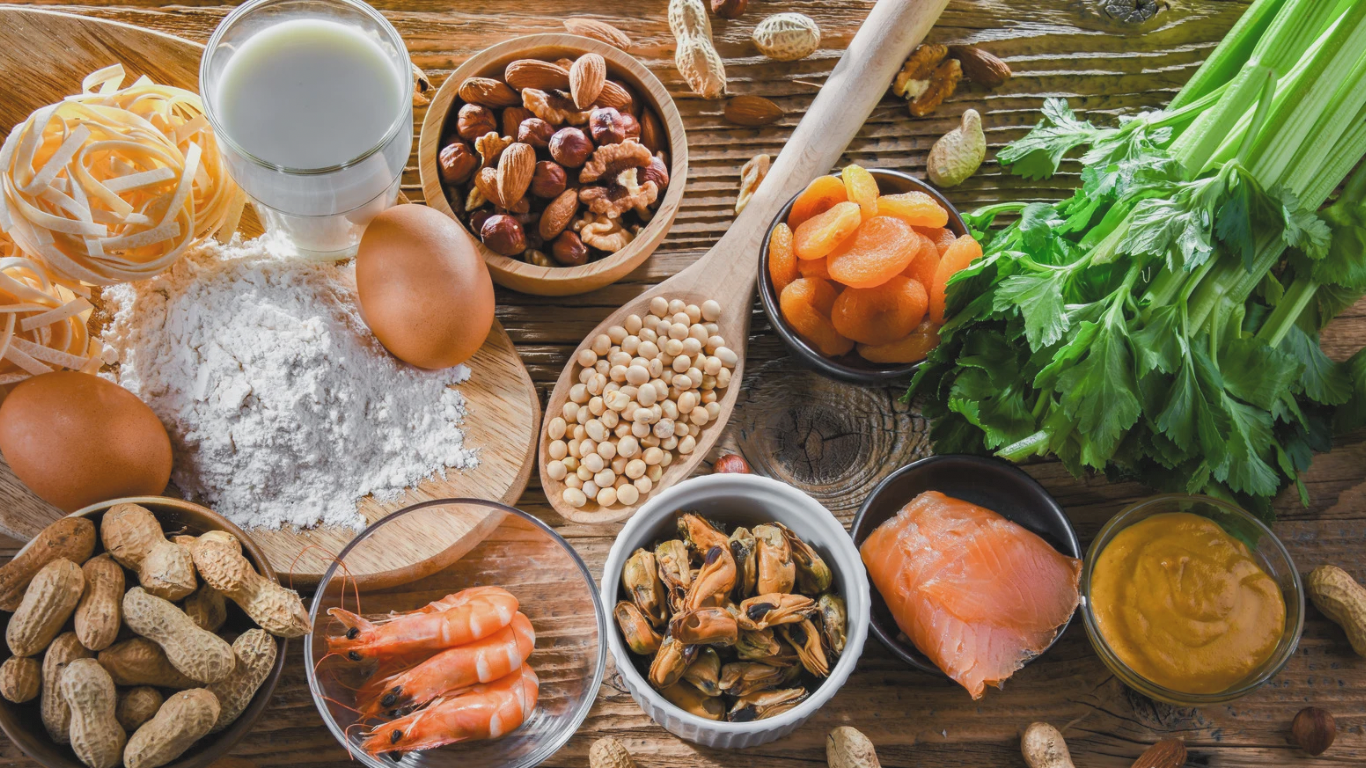What are industrial seed oils?

Seed oils have sparked a debate in the wellness community in recent years due to their prevalence in our diets and their potential impacts on our health. What exactly is the deal with these processed oils, and how should you approach consuming them? I'm here to provide you with a comprehensive guide so that you can make informed decisions that promote your well-being.
Industrial seed oils are highly processed oils derived from seeds and plants. These oils made their debut in the American diet in the early 20th century, crafted from an industrial byproduct that could be highly-processed and used as a cheap lard and cooking fat alternative.
Common examples of seed oils include:
- Canola oil (aka rapeseed oil)
- Corn oil
- Cottonseed
- Grapeseed oil
- Soybean oil
- Sunflower oil
- Safflower oil
Industrial seed oils go through extensive processing (including refining, bleaching, and deodorizing) which can strip them of their natural nutrients and introduce harmful compounds. They are now a common ingredient in American cooking and baking, and are often found in processed foods, fast food, and restaurants.

Are seed oils unhealthy?
Inflammation
One of the main concerns with industrial seed oils is their high omega-6 fatty acid content. While omega-6 fatty acids are essential in small amounts, an imbalance between omega-6 and omega-3 fatty acids can lead to chronic inflammation. And most Americans aren’t eating enough Omega 3’s (from avocado, fish, and walnuts) to counteract the Omega 6’s we’re taking in through processed foods.
Chronic inflammation is linked to a host of health issues - including heart disease, obesity, diabetes, and autoimmune disorders.
Oxidation & Free Radicals
Industrial seed oils are prone to oxidation, especially when exposed to high heat during cooking. Oxidized oils generate free radicals, which can damage cells, proteins, and DNA, potentially leading to various inflammatory conditions and diseases - everything from eczema to stubborn weight to cancer.
Trans Fats
Although trans fats have been largely reduced in many food products, trace amounts can still be found in some industrial seed oils due to the high-temperature processing. Trans fats are notorious for increasing bad cholesterol (LDL) and decreasing good cholesterol (HDL), contributing to heart disease.

What should you do?
Limit Consumption
Given the potential health risks, it's smart to limit the consumption of seed oils. This means being vigilant about reading ingredient lists on processed and packaged foods, as these oils are commonly used as cheap fillers. To keep things simple, opt for whole, home-cooked foods as much as possible.
Swaps & Substitutes
Choose fats and oils which are less processed and have a better fatty acid profile.
Here are some great seed oil alternatives:
- Extra Virgin Olive Oil: Rich in monounsaturated fats and antioxidants, it's great for low to medium-heat cooking and dressings.
- Coconut Oil: Contains medium-chain triglycerides (MCTs) that can be beneficial for metabolism. Best for baking and medium-heat cooking.
- Avocado Oil: High in monounsaturated fats and has a high smoke point, making it suitable for high-heat cooking.
- Butter & Ghee: These animal fats are rich in fat-soluble vitamins and are excellent for cooking at higher temperatures.
Like having easy to access snacks on hand but feeling intimidated by ingredient lists? Enjoy the convenience of some of my favorites, without the guilt:
- Lesser Evil popcorn
- Artisan plantain chips
- Siete potato chips
- Boulder potato chips
- Xochitle corn chips
The Final Score
Incorporating healthier oils and fats into your diet is a small change that can have significant health benefits. By being mindful of the oils you consume, you can reduce inflammation, lower your risk of chronic diseases, and promote overall well-being.




Recent Blog Posts
Share this post!
About the Author
Rhya Pachin is a licensed dietitian nutritionist who employs an "integrative" approach to support overall health rather than addressing just one symptom. As a certified LEAP therapist, she designs and supervises custom elimination diets. Her focus areas include gastrointestinal conditions like IBS and IBD, autoimmune diseases such as rheumatoid arthritis and Hashimoto's, persistent weight issues, food sensitivities, and chronic inflammatory conditions in both adults and children.




